
The first and only time I visited Ukraine was in 2019. My book “The Possessed”—a memoir I had published in 2010, about studying Russian literature—had recently been translated into Russian, along with “The Idiot,” an autobiographical novel, and I was headed to Russia as a cultural emissary, through an initiative of PEN America and the U.S. Department of State. On the way, I stopped in Kyiv and Lviv: cities I had only ever read about, first in Russian novels, and later in the international news. In 2014, security forces had killed a hundred protesters at Kyiv’s Independence Square, and Russian-backed separatists had declared two mini republics in the Donbas. Nearly everyone I met on my trip—journalists, students, cultural liaisons—seemed to know of someone who had been injured or killed in the protests, or who had joined the volunteer army fighting the separatists in the east.
As the visiting author of two books called “The Possessed” and “The Idiot,” I got to hear a certain amount about people’s opinions of Dostoyevsky. It was explained to me that nobody in Ukraine wanted to think about Dostoyevsky at the moment, because his novels contained the same expansionist rhetoric as was used in propaganda justifying Russian military aggression. My immediate reaction to this idea was to bracket it offas an understandable by-product of war—as not “objective.”
Denne historien er fra January 30, 2023-utgaven av The New Yorker.
Start din 7-dagers gratis prøveperiode på Magzter GOLD for å få tilgang til tusenvis av utvalgte premiumhistorier og 9000+ magasiner og aviser.
Allerede abonnent ? Logg på
Denne historien er fra January 30, 2023-utgaven av The New Yorker.
Start din 7-dagers gratis prøveperiode på Magzter GOLD for å få tilgang til tusenvis av utvalgte premiumhistorier og 9000+ magasiner og aviser.
Allerede abonnent? Logg på
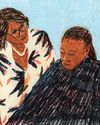
MEAN TIME
“Hard Truths.”
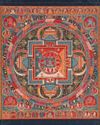
ENLIGHTEN ME
The secret beauty of mandalas.
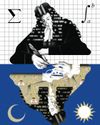
THE BEST OF THEM
His was a genius for the ages. Will Gottfried Leibniz ever get his due?

DEATH CULT
Yukio Mishima’ tortured obsessions were his making—and his unmaking.
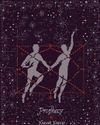
Prophecy
The night of Dev’s twenty-second birthday, he was invited to sit with the elders after dinner.

A TALE OF TWO DISTRICTS
Lauren Boebert and Colorado’s red-blue divide.

THE TIKTOK TRAIL
Andean migrants draw others to the U.S. with videos depicting themselves as living the American Dream.

LOVE AND THEFT
Did a best-selling romantasy novelist steal another writer's story?
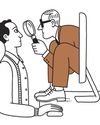
OUR NEW TWO-FACTOR AUTHENTICATION SYSTEM
Our two-factor authentication system is expanding because text messages and e-mailed codes are becoming less secure. Also, we’re committed to making sure your log-in process is more of a hassle than it needs to be.
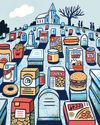
STILL PROCESSING
Why is the American diet so deadly?